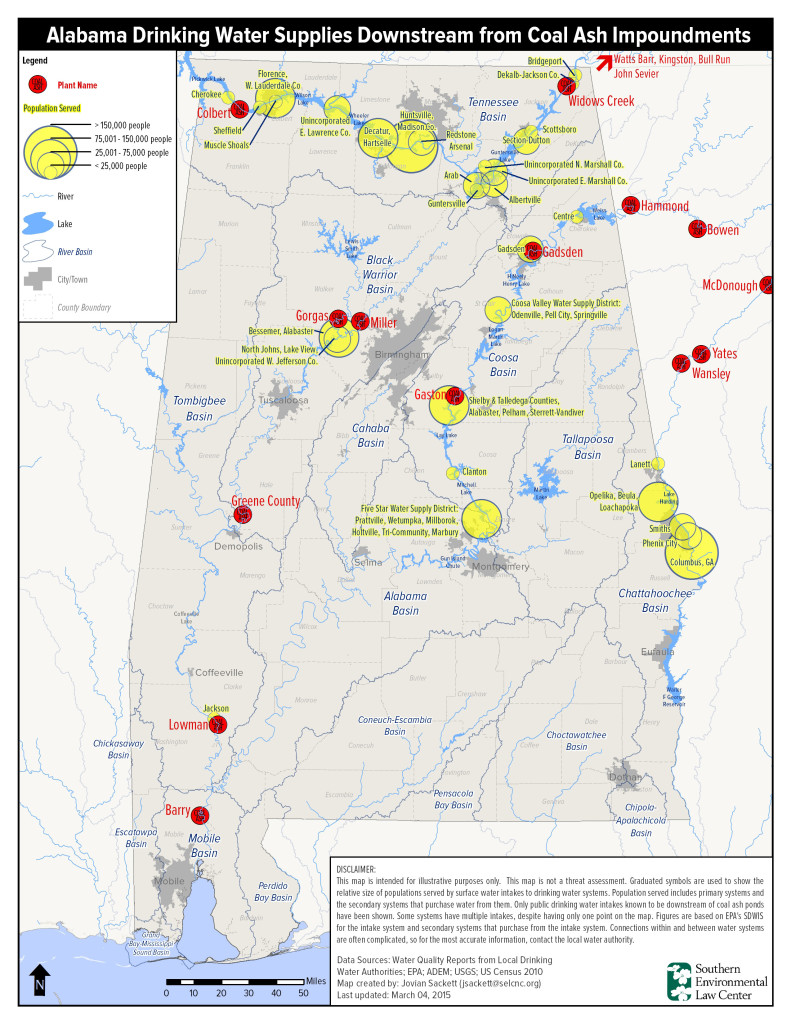EPA Proposes to Deny Alabama Coal Ash Program
EPA Proposes to Deny Alabama’s Unsafe Coal Ash Program, Opening Door for Public Comments
For Immediate Release
Contact: Nelson Brooke, Black Warrior Riverkeeper, 205-458-0095, [email protected]
Birmingham, AL (August 3, 2023) – In a landmark development today, the Environmental Protection Agency (EPA) proposes to reject Alabama’s coal ash program, written and overseen by the Alabama Department of Environmental Management (ADEM). EPA’s decision stems from the significant risks unlined toxic coal ash disposal areas pose to local communities and waterways. The proposed decision marks the beginning of a public comment period, empowering Alabamians to demand a responsible coal ash regulatory program that protects them and the places they love.
EPA’s proposed denial sends a clear message: ADEM’s permitting program has failed to protect Alabama communities by allowing coal ash to be disposed of irresponsibly along rivers and in the wetlands that feed them. For years, Alabama Power has claimed incorrectly that the fact ADEM has allowed them to leave hundreds of millions of tons of toxic ash in leaky, unlined pits by rivers proves their closure plans are safe and legal. Now that the EPA confirms these dangerous practices put people, wildlife, and waterways in harm’s way. ADEM must strengthen its permitting to stop the contamination of local waterways if it wants to administer a coal ash regulatory program in Alabama.
“Coal ash waste has been mismanaged by Alabama Power Company for roughly 100 years and improperly regulated by ADEM for roughly 40 years, allowing contamination of groundwater, streams and rivers at Plant Gorgas, Plant Miller and Plant Greene County with toxic pollutants,” said Nelson Brooke, Black Warrior Riverkeeper. “We welcome EPA’s proposed denial of Alabama’s inadequate coal ash regulatory program, and hope it forces Alabama Power to properly dispose of its toxic coal ash waste away from water resources, as we’ve been encouraging them to do all along. Proper disposal of coal ash is critical to the health and success of future human and wildlife generations.”
Across the Southeast, states like Virginia, North Carolina and South Carolina have required utilities to clean up coal ash contamination, with over 250 million tons of hazardous coal ash being excavated from unlined pits near waterways. These materials are either recycled or disposed of in modern, lined landfills away from rivers. Even Alabama Power’s sister company, Georgia Power has recycled or properly disposed of over 65 million tons of ash. EPA’s decision makes clear that Alabama can no longer be the outlier and must implement similar safeguards.
The EPA’s proposed denial triggers a public comment period, culminating in an in person hearing on September 20th, in Montgomery, Alabama and a virtual hearing on September 27th. This process provides concerned Alabamians with the opportunity to submit comments supporting the EPA’s decision, urging Alabama to reform its coal ash program. More details on the comment process will be forthcoming.
With the support of engaged Alabamians and the EPA’s firm stance, Black Warrior Riverkeeper remains hopeful that Alabama will adopt a permitting program that prioritizes the protection of both people and ecosystems in Alabama.
For more information about coal ash in the Black Warrior River watershed, including maps, pictures and reports, visit: blackwarriorriver.org/coal-ash-and-power-plants/
For EPA’s press release, visit: epa.gov/newsreleases/epa-proposes-deny-alabamas-coal-ash-permit-program-and-better-protect-local
###
Black Warrior Riverkeeper’s mission is to protect and restore the Black Warrior River and its tributaries. The nonprofit organization promotes clean water for the sake of public health, recreation, and wildlife habitat throughout the Black Warrior River watershed. blackwarriorriver.org

This map shows Alabama drinking water sources downstream from coal-fired power plants’ coal ash waste impoundments, which discharge tens of millions of gallons of polluted wastewater into Alabama’s water resources every day.












